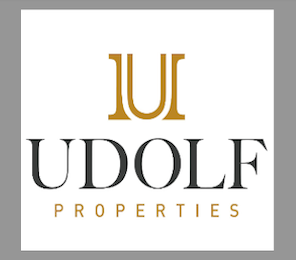By Maayan Jaffe/JNS.org

Syrian Dania Darwish (left) and Israeli Abraham Gutman, pictured, started the hashtag campaign #JewsAndArabsRefuseToBeEnemies.
#JewsAndArabsRefuseToBeEnemies. To some, it’s just a hashtag. To others, it’s a way of life.
When Israeli Abraham Gutman and Syrian Dania Darwish, students at Hunter College in New York City, recently posted a photo of themselves holding signs with the above hashtag on Facebook, they didn’t know it would create a worldwide sensation.
“We are not politicians, not PR people,”Gutman told JNS.org. “We are students. We know a hashtag won’t solve this long conflict, but we wanted to be part of the solution and not part of the problem.”
But since the hashtag campaign started, dozens of others have posted similar photos in an attempt to demonstrate that people of different backgrounds, religions, and countries of origin can be friends, lovers, and even spouses.
“This is about people,”said Gutman.
People such as Sara and Maggie Amin, sisters born to an Egyptian Muslim father and a Jewish American mother. Their parents have been married for 39 years.
Growing up, the Amins said they didn’t think anything of their mixed origins. Mom cooked matzo ball soup and grandma would come in the summer to make homemade falafel and other Middle Eastern cuisine. In Rockville, Md., they attended a school that catered to children of foreign diplomats—her parents were not diplomats—and hence had friends of every religion and culture.
“We had one friend whose father was Hungarian and mom Filipino. Another friend was Greek,”recalled Sara Amin, her sister noting that at one point there were 92 nations represented at her high school.
But when Maggie Amin left for Pennsylvania State University at 18, she encountered for the first time people who were “taken aback”by her background.
“I used to call my parents crying because I was so angry,”said Maggie Amin, recalling the hateful taunts and questions her peers imparted. She said students would say, “How is that possible?”or “Do your parents fight all the time?”or “Is your dad a terrorist—how does your mom deal with that?”
Maggie Amin said she would stand up for her parents, telling peers that her parents not only didn’t fight, but were deeply in love. If they discussed the Middle East at the dinner table, they’d usually agree—and their debates were no different than any other married couple’s.
The girls used to travel to Egypt regularly when they were younger, though in recent years and since the passing of their grandmother, the family has been more hesitant. Sara Amin recalled that the visits required more-than-average planning. Their parents had to bring their marriage license, for example, to prove they were a couple, and the group would be stopped at border control for questioning. Authorities could not understand what this Egyptian man was doing with three “white women.”
“It was frustrating sometimes,”said Maggie Amin, “but nothing we couldn’t overcome.”
Salem Almaani, 26, of Jordan, and Matt Martin, 32, of California, live together in Brooklyn, N.Y. The gay couple met through mutual friends two years ago and were among the many to post a photo with #JewsAndArabsRefuseToBeEnemies.
Martin told JNS.org that he and his partner have often joked that they are “the representation of peace in the Middle East.”
The couple’s mixed background has never proved to be an obstacle. If anything, it has opened their eyes to a new reality. Martin, for example, was raised culturally Jewish and during college became a more active supporter of the state of Israel. Since meeting Almaani, he said, “I am not on one side or the other. I see both sides a lot clearer.”
Almaani said his decision to date Martin was met with some resistance by his parents. His mother had a hard time accepting his homosexuality and his choice to date someone of a different background. His father, he said, “is pretty conservative and he has had to alter some of his perspectives.”
“A product of the media mainly, it seems you always have to marginalize people, paint someone as the bad guy or good guy,”said Martin. “But there are two sides and people from different backgrounds can get along, work together, be as successful and happy as other friends or couples that are from the same background.”
Dr. Sahar Eftekhar, an Iranian Muslim dating Jewish American Zachary Wettenstein, expressed similar sentiments. She said the couple celebrates each other’s holidays and sees each other’s rich culture as a benefit, not an obstacle.
When Eftekhar and Wettenstein posted a photo, however, hateful comments came in from every direction. Eftekhar said Muslims from Arab countries accused her of overstepping her bounds, being that she is of Persian and not technically Arab origin. Others called them names, and made accusations she is confident they only felt comfortable expressing from behind their computer screens, rather than face to face.
These comments, she said, give her posting—and the #JewsAndArabsRefuseToBeEnemies hashtag—greater importance.
“Sometimes it is hard for others to put themselves in someone else’s shoes or to see the world through someone else’s eyes,”said Eftekhar. “I think this is a very dangerous thing. Underneath these stereotypes, which we have placed on each other, we are the same. We are all human. …I hope our generation will be more open-minded and spread this message.”
Sara Amin hopes so, too. She said watching her Facebook feed—she works at a Jewish federation—has been “interesting.”Her Jewish friends are reporting one side of the story, her Palestinian and Egyptian friends another.
“It’s like a seesaw. You keep getting yanked back and forth. You feel everyone wants what is best for themselves. But what about what’s best for the whole?”she said, adding, “I think the hashtag #JewsAndArabsRefuseToBeEnemies is saying we have a choice of how to live our lives, how to treat others, whether to embrace others or not.”
Gutman, the hashtag’s co-creator, stressed social media’s upside and downside.
“Social media is a great tool for social good,”he said. “But it also makes us use harsh words, get in arguments—quick, fast, short, and bold. That’s not productive. #JewsAndArabsRefuseToBeEnemies says, ‘Let’s be respectful and have a conversation.’”
Maayan Jaffe is a freelance writer in Overland Park, Kan. Reach her at maayanjaffe@icloud.com or follow her on Twitter, @MaayanJaffe.








 Southern New England Jewish Ledger
Southern New England Jewish Ledger









